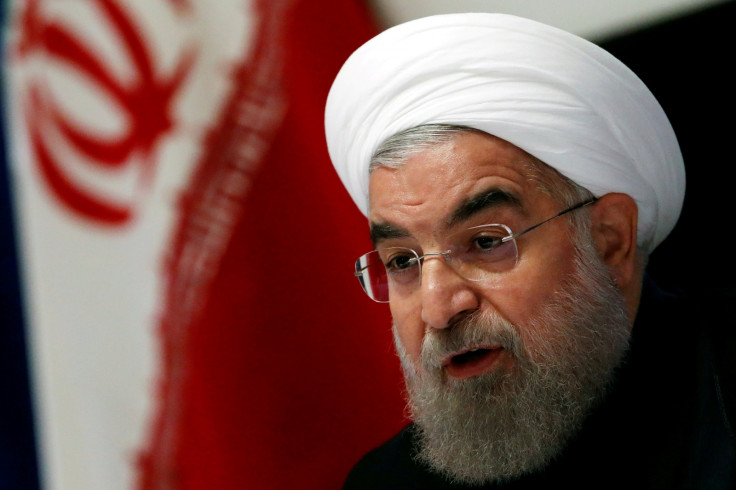Iran will not let Trump 'rip apart' nuclear deal, warns Rouhani
'Do you think we and our nation will let him do that?' the Iranian president said.

Iran has issued a warning saying it will not allow US President-elect Donald Trump to tear apart the long-term nuclear deal it signed with six global powers.
"He may desire to weaken the nuclear deal. He may desire to rip up the deal. Do you suppose we will allow this?" Iranian President Hassan Rouhani asked during a speech at the University of Tehran on Tuesday (6 December).
Rouhani's remarks, reported by the Associated Press (AP), come just a day after both Iran and China's foreign ministers met and called for the deal to remain in place. Chinese Foreign Minister Wang Yi said the deal is "the common and joint responsibility of all the parties involved, and it should not be affected by any change in the domestic situations of the countries concerned".
The deal with Iran was spearhead by US Secretary of State John Kerry, and backed by China, Britain, France, Germany and Russia in 2015. Under its terms, Iran agreed to stop its nuclear weapons-grade uranium enrichment programme and destroy uranium stockpiles almost entirely. This would essentially put an end to the country's quest to build a nuclear weapon. The deal is, in turn, for the US, EU, and United Nations to lift economic sanctions.
During the US election campaign, Trump criticised the Iran nuclear accord, calling it a "lopsided disgrace" and one of "the worst deals ever negotiated". While it is not yet clear whether the Republican's campaign rhetoric will translate into action to row back on his predecessor's legacy foreign policy achievement, Trump has faced both domestic and international pressure against such a move.
On 1 December, the US Senate voted 99-0 to extend the Iran Sanctions Act (ISA) by 10 years. According to Senate Foreign Relations Committee Chairman Bob Corker, it gives the US "the ability to reimpose the sanctions the Obama administration lifted to implement the Iran nuclear deal and ensures President-elect [Donald] Trump and his administration have the tools necessary to push back against the regime's hostile actions."
The ISA extension angered Tehran, who accused Washington of breaking the agreement. "There is no doubt that the United States is our enemy," Rouhani was quoted as saying by Reuters. "If Obama signs ISA but uses waiver rights to cease its implementation, it still infringes the nuclear agreement and we will react to it."
Last Friday (2 December) Trump met former US ambassador to the United Nations, John Bolton, who is hawkish on Iran, after his transition team said he was seeking advice. "The only long-term solution is to change the regime in Tehran," Bolton said in an interview in November. Bolton is said to be on the list of candidates Trump may nominate as secretary of state.
And last week Trump picked General James Mattis, who in April said Iran is the "single most belligerent actor in the Middle East," as his Secretary of Defence.
Other nations, however, are calling for the deal to remain. Last Thursday (1 December), Russian Deputy Foreign Minister Sergey Ryabkov told Russia's largest news wire service TASS that Trump should adjust his "pre-election promises" to rip up the Iran nuclear deal.
Rybakov said that he considers the deal "very balanced" and contains "considerable positive impetus for the situation in the Middle East and for international relations in general".
© Copyright IBTimes 2025. All rights reserved.






















